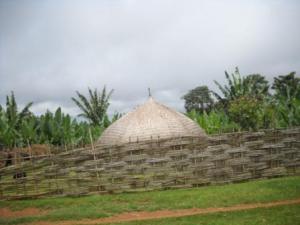Ecco’s Brazilian coffee is just about done at all locations. That means we are moving to Counter Culture for our next guest coffee. It’s been fun getting to know these guys. They roast their beans down in Durham, North Carolina. I am so excited about this coffee. It is from a great coffee growing region in the southern part of Ethiopia, called Sidama. The name of the coffee is Shilicho which translates to “Good Taste” in Sidama. Not as wild as some other coffees from Ethiopia (Yirgacheffe), which can be very sour with varying degrees of fruitiness. This one is sort of sweet, round, and vibrant. If you take cream, we suggest you try it black first. You might be surprised how it tastes. We’ll be pouring this Ethiopian coffee for the next few weeks at all our locations. Oh and the picture is the bar at the HUB in Inman Square, we’ve been making food there since Saturday. http://www.cloverfoodlab.com/counter-culture-shilicho-sidama-ethiopia/



